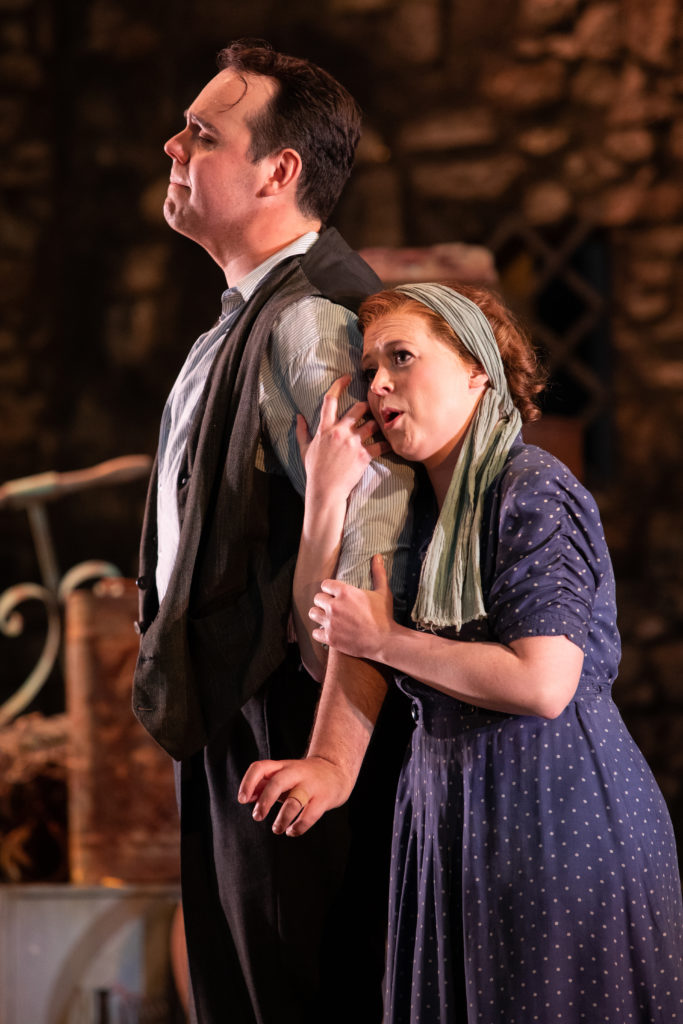
Federico (Samuel Sakker) and Vivetta (Fflur Wyn), photo by Ali Wright
A Family Romance – review of L’Arlesiana
Opera in three acts, music composed by Francesco Cilea, libretto by Leopoldo Marenco after Alphonse Daudet, new production by Investec Opera Holland Park, City of London Sinfonia and Opera Holland Park Chorus conducted by Dane Lam, directed by Oliver Platt, reviewed by Leslie Jones
Ignore what you may have heard about L’Arlesiana; that the libretto is uninspired and only merits a concert performance, such as that given recently by Deutsche Oper (see Rebecca Schmit, Classical Voice North America, March 19th 2018); or that only the famous aria Lamento di Federico, È la solita storia del pastore, is vaut le voyage. For as critic Tim Ashley remarked in his perceptive review of Holland Park’s 2003 production, “The whole is a lesson in how to make an opera that is by no means a masterpiece come vividly alive”.
Freud’s epoch-making The Interpretation of Dreams was published in 1899. In 1897, L’Arlesiana was premiered in the Teatro Lirico, Milan, with Enrico Caruso, no less, as Federico. There is synchronicity here. We have a mother, Rosa Mamai, who is obsessed with her first born son Federico and a son fixated on his mother. “Mother you will always be my greatest love”, Federico confides. Baldassare’s story of a wolf savaging a she-goat has a distinctly Freudian flavour.
Federico’s other love object, the woman from Arles, in contrast, is never seen. After the drover Metifio (Simon Wilding) provides Rosa Mamai (Yvonne Howard) with incontrovertible proof that this mysterious personage is his lover, Federico feels betrayed by women in general, who now disgust him.
Concerning the putative intellectual influences on Cilea, George Hall maintains that “… Wagner is clearly present in the Italian composer’s background…” (‘The Wolf and the Goat’, Official programme). But so too is Schopenhauer. In Parsifal, Amfortas has a wound that will not heal, which symbolises the ubiquity of human suffering. His pain elicits Parsifal’s compassion. Cilea, likewise, employs the notion of love or compassion as a means of healing. Federico believes that Vivetta’s love will cure him of his self-destructive infatuation.
Peace=sleep=forgetting=death. In this too rarely heard work, Cilea and his librettist consider themes that are elemental and universal. All of the leading roles were consummately performed and the orchestra shone. A revelation…










